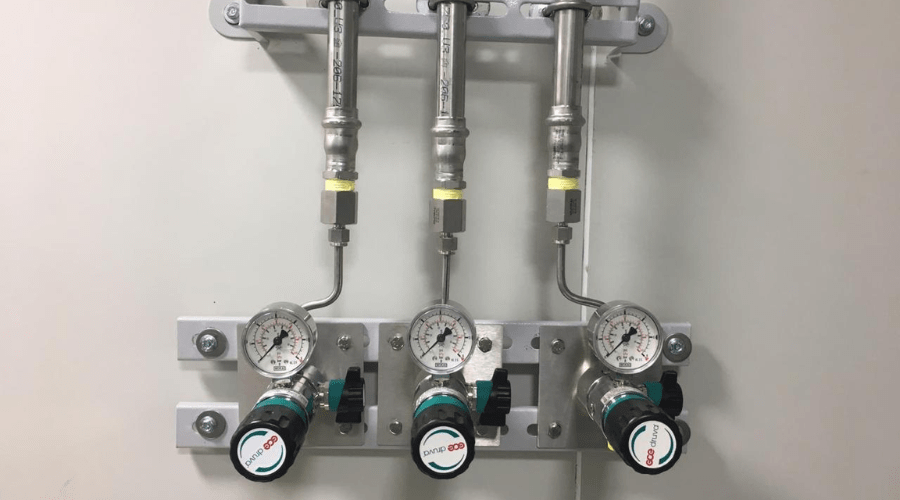In the ever-evolving world of healthcare, patient well-being is the top priority. This focus on health and safety extends beyond the medical procedures and personnel to the infrastructure that supports it. One of the unsung heroes in healthcare facilities is the unassuming but crucial stainless steel pipe. These pipes are the lifelines of health institutions, ensuring a sterile flow of water, gasses, and other essential fluids. Let’s explore why stainless steel pipes are the top choice for maintaining a sterile flow in healthcare environments.
1. Corrosion Resistance:
Healthcare facilities face a barrage of corrosive substances daily. Cleaning agents, disinfectants, and bodily fluids can wreak havoc on traditional pipes, compromising the quality of the water supply. Stainless steel pipes, however, offer unparalleled corrosion resistance. Their exceptional resistance to these corrosive elements ensures the longevity and safety of plumbing systems in healthcare facilities.
With stainless steel pipes, you can trust that the water used for patient care and other critical applications remains pure and uncontaminated.
2. Hygiene and Sterility:
In healthcare, maintaining the highest level of hygiene and sterility is non-negotiable. Stainless steel’s non-porous surface doesn’t allow the growth of bacteria, fungi, or other harmful microorganisms. This makes it the ideal choice for pipes that transport water, medical glasses, and other fluids within hospitals. Stainless steel pipes significantly reduce the risk of cross-contamination, ensuring that the fluids transported through them remain uncontaminated.
Moreover, the smooth surface of stainless steel is easy to clean and sterilize, meeting the rigorous cleanliness standards of healthcare environments where patient safety is paramount.
3. Strength and Durability:
The healthcare industry operates around the clock, and the demand for uninterrupted services is constant. Stainless steel pipes offer exceptional strength and durability, ensuring they can withstand the rigors of daily use without suffering damage. This reliability is crucial for maintaining the continuous operation of vital medical systems, including HVAC, water supply, and medical gas distribution.
Stainless steel pipes can withstand temperature and pressure variations without compromising their structural integrity, contributing to the overall safety and efficiency of healthcare infrastructure.
4. Low Maintenance Requirements:
Stainless steel pipes are renowned for their low maintenance requirements. Once installed, they demand minimal upkeep, saving healthcare facilities time and money in the long run. This reduced need for maintenance not only lowers operational costs but also minimizes disruptions in healthcare services.
By choosing stainless steel pipes, healthcare institutions can focus their resources on patient care rather than dealing with frequent repairs and maintenance issues that other materials may entail.
5. Resistance to Chemicals:
Healthcare settings require various chemicals and pharmaceuticals in patient care and medical processes. Stainless steel pipes can withstand exposure to these chemicals without corrosion or chemical degradation. This resistance to chemicals is vital, as it ensures the integrity of the pipes and the safety of the materials being transported through them.
6. Environmentally Friendly:
Stainless steel is an environmentally friendly material. It is fully recyclable, and many stainless steel products are made from recycled materials. The sustainability of stainless steel aligns with the healthcare industry’s increasing focus on eco-friendly practices and green building standards.
By choosing stainless steel pipes, healthcare facilities can contribute to reducing their environmental footprint and promoting sustainability in healthcare infrastructure.
7. Regulatory Compliance:
The healthcare industry is highly regulated, with strict standards and guidelines in place to ensure the safety and well-being of patients and staff. Stainless steel pipes comply with these stringent regulations and standards, including those related to drinking water quality and medical gas systems. Using stainless steel pipes helps healthcare facilities meet regulatory requirements, ensuring the highest safety and quality of care.
In conclusion,
stainless steel pipes are the unsung heroes of the healthcare industry, ensuring the purity and safety of the fluids and gasses that support patient care. Their exceptional corrosion resistance, hygienic qualities, strength, and durability make them the perfect choice for healthcare facilities. With stainless steel pipes, healthcare institutions can maintain the high standards of safety, sterility, and quality care essential for patient well-being. As healthcare advances, stainless steel pipes will remain indispensable, silently ensuring the delivery of quality care to those in need.



